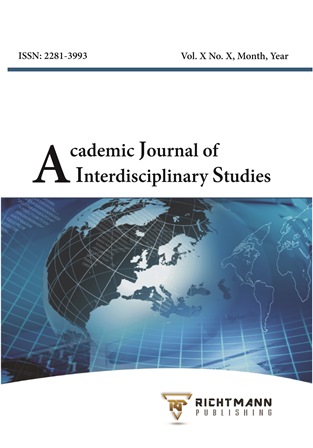Indigenous Peoples’ Phronetic Leadership: A Trailblazing Case Study of Bacut Man-Made Lake for Agri-Eco-Tourism, Apayao, Philippines
DOI:
https://doi.org/10.36941/ajis-2024-0060Keywords:
Phronesis, socialization, externalization, combination, and internalization (SECI) modelAbstract
Indigenous Phronetic Leaders inspired and promoted immense developments in communities through collective organizational knowledge creation. The study aimed to identify the problem of farmers, determine how phronetic leadership was practiced by the key informant, and describe the present situation of Bacut, Santa Marcela, Apayao, Cordillera Administrative Region (CAR), Philippines. Mr. Elorde P. Anniban, an indigenous phronetic leaders was the main participant and the protagonist. He is an indigenous respected elder or “pangat” who, despite being physically disabled, initiated reforms in Bacut. In-depth interviews and document reviews were applied in this management case study. Results revealed that the main problem of the farmers was low rice production because there was no water system to irrigate their farmlands. Without the knowledge of the key participant, he applied the socialization, externalization, combination, and internalization (SECI) model and encouraged the mining of bright ideas of the people, engaged stakeholders and relentlessly sought government intervention to address the problem of farmers. Through the phronetic leadership of the key informant, the farmers, and the government leaders, an environment-friendly dam, fondly called the Bacut Lake was constructed irrigating farmlands and doubling and even tripling rice production addressing poverty in Santa Marcela, Apayao. In addition, indigenous peoples' phronetic leadership, the province of Apayao has now an astounding agri-eco-tourism site, a national park, rich in biodiversity, and several existing organizations are working together to boost the economy of the farmers and the province. On the other hand, Ifugao State University, a government higher education institution in the country, crystallized a phronetic leadership framework as an offshoot of the study.
Received: 28 September 2023 / Accepted: 23 February 2024 / Published: 5 March 2024
Downloads
Downloads
Published
Issue
Section
License

This work is licensed under a Creative Commons Attribution-NonCommercial 4.0 International License.
This work is licensed under a Creative Commons Attribution-NonCommercial 4.0 International License.








